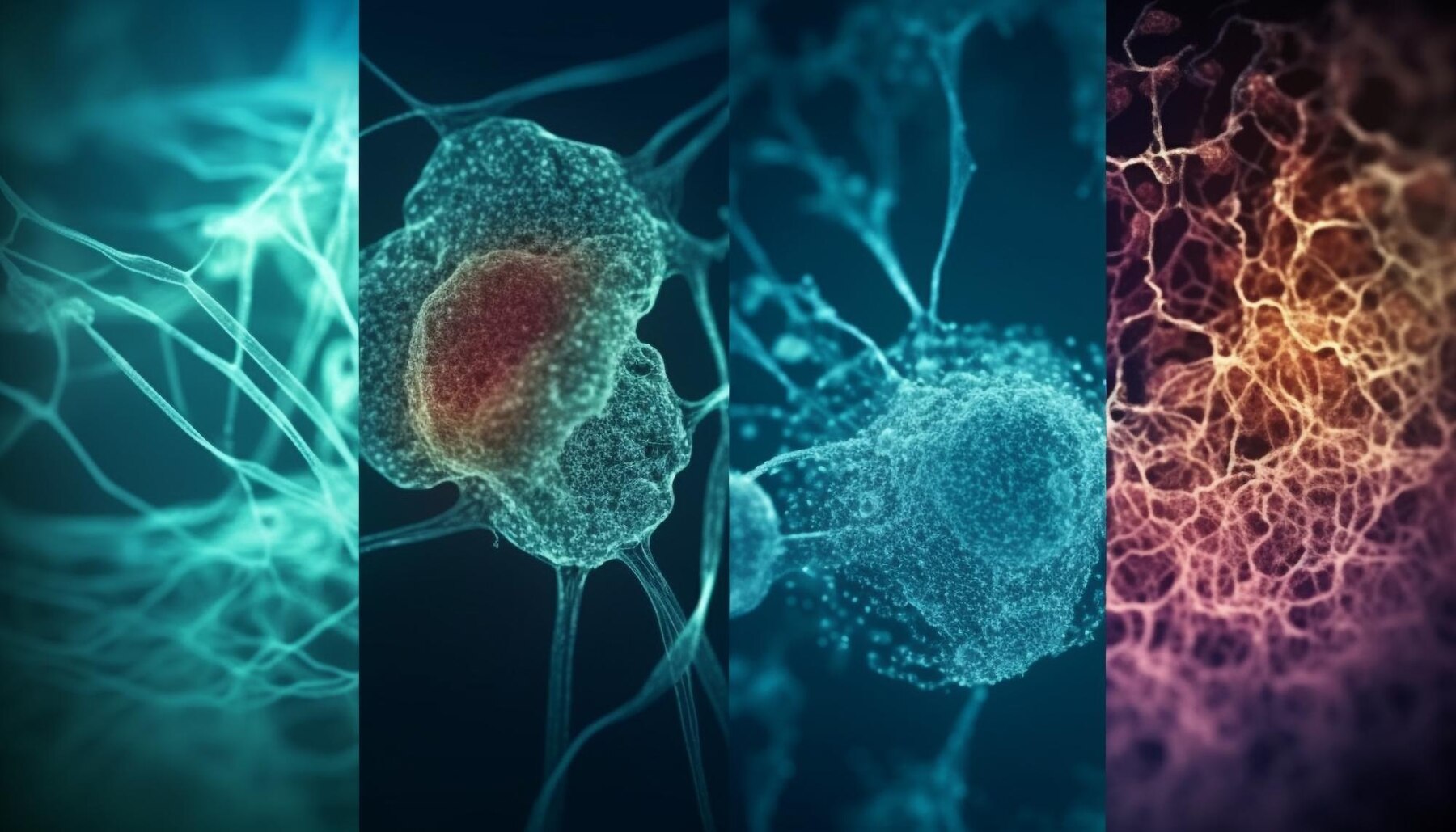
With time, Cancer has become a leading cause of death worldwide. In 2023, 1,958,310 new cancer cases and 609,820 cancer deaths occurred in the United States. In many cases, however, the disease can be cured if detected early and treated quickly.
AI-based cancer cell detection is now a new field of medical research in which AI can recognize aberrant cell patterns that are suggestive of malignant developments.
AI models are being trained by researchers to identify cancerous cells from genetic sequencing data, pathology slides, and radiography images. The objective is to create AI-powered tools that will help medical professionals detect cancer cells more effectively and consistently, which will bring higher survival rates.
The market for AI-driven cancer diagnostics was estimated to be worth US$ 859.0 million globally in 2022 and is expected to grow at a CAGR of 11.2% to reach US$ 2.0 billion by 2031.
In this article, we will explore some of the breakthrough success stories of AI-based technologies in the detection of cancer.
Success stories: Innovative AI-based Technologies for Cancer Detection
Sybil Tool: AI in detecting early signs of lung cancer
Lung cancer is the third most common cancer in the United States, according to the CDC.
Artificial intelligence is helping researchers at the Massachusetts Institute of Technology in Cambridge and the Mass General Cancer Center, who have created the new AI tool, Sybil. According to one study, 86% to 94% correct prediction can be done by the tool in detecting whether someone will get lung cancer in the upcoming year.
Adults who are at risk of developing lung cancer are currently advised by the Centers for Disease Control and Prevention to undergo an annual low-dose CT scan to check for the illness. The most experienced radiologist’s eye can’t see everything, though, even with routine screening; this is where Sybil comes in.
Sybil has been trained on low-dose chest computed tomography scans, which are advised for people who smoke or have smoked in the past and are between the ages of 50 and 80.
According to a study that was published in the Journal of Clinical Oncology, Sybil was able to correctly identify, from an image, the likelihood that a patient would get lung cancer within six years while undergoing lung cancer screening.
AI to Predict Future Pancreatic Cancer
Pancreatic cancer is one of the deadliest cancers in the world, and its toll is projected to increase hugely in the coming days globally.
According to new research led by researchers at Harvard Medical School and the University of Copenhagen, in collaboration with the VA Boston Healthcare System, Dana-Farber Cancer Institute, and the Harvard T.H. Chan School of Public Health, an artificial intelligence tool has successfully identified people at the highest risk for pancreatic cancer up to three years before diagnosis using solely the patients’ medical records.
The results, which were published in Nature Medicine, imply that AI-based population screening may be useful in identifying people who are more susceptible to the illness and may speed up the diagnosis of a condition that is far too frequently discovered at an advanced stage.
The AI system used in the study was trained on two different sets of data, a combined total of 9 million patient records from the US and Denmark. The model identified patients who are at risk of developing pancreatic cancer in the future based on combinations of disease codes and the timing of their occurrence.
The ability of various AI model iterations to accurately identify individuals at high risk of developing a disease over six months, a year, two years, and three years was tested by the researchers.
AI detecting cancers through CT scans
An AI tool that can determine whether abnormal growths detected on CT scans are cancerous, has been created by experts from Imperial College London, the Institute of Cancer Research, London, and the Royal Marsden NHS Foundation Trust.
Based on a study published in the eBioMedicine journal of the Lancet, the algorithm works better than existing approaches.
The team developed an AI algorithm using radiomics using CT scans of approximately 500 patients with large lung nodules. Vital information from medical images that is difficult for the human eye to see can be extracted using this technique.
According to the findings, the AI model had an AUC of 0.87 for determining the cancer risk associated with each nodule. The performance was better than the 0.67 Brock score, a test that is currently used in clinics. The model’s performance was also comparable to that of the Herder score, a different test with an AUC of 0.83 that showed promising results in cancer prediction.
AI-powered model in breast cancer detection
Globally, there were 685,000 breast cancer-related deaths and 2.3 million new cases of the disease in 2020. Shockingly, every two minutes a woman in the U.S. is diagnosed with the disease.
Although better health outcomes are dependent on early breast cancer detection, mammograms are labor-intensive, and waiting for the results can be upsetting for patients.
Google’s breast cancer detector represents a major advancement in the field of AI-powered diagnostics. Through the use of AI algorithms and extensive mammography data, Google’s system has demonstrated remarkably high accuracy in detecting breast cancer.
In a study published in the journal Nature, it was found that their AI detector performed slightly better than radiologists in correctly detecting breast cancer.
Deep learning algorithm in identifying skin cancer
In the US, there are roughly 5.4 million new cases of skin cancer diagnosed each year. The five-year survival rate for melanoma is approximately 97% when the disease is discovered in its early stages, but it drops to 14% when diagnosis is delayed.
Scientists at Stanford University created a database with almost 130,000 photos of skin conditions, from which they trained an algorithm to identify possible cancers visually. It tested well right away, demonstrating impressive accuracy.
The study, which was published in Nature, was evaluated by 21 dermatologists with board certification. The algorithm’s diagnosis of skin lesions, which were the most prevalent and deadly skin cancers, matched dermatologists’ performance.
Typically, a dermatologist uses a dermatoscope in addition to their unaided eyes to examine any suspicious lesions. Using this deep learning algorithm during the examination process is in line with a growing trend in AI-guided skin cancer detection with higher accuracy.
Using AI in Colorectal Cancer Detection
At Tulane University, researchers discovered that AI can accurately detect and diagnose colorectal cancer by analyzing tissue scans as well or better than pathologists.
The researchers collected more than 13,000 colorectal cancer photos from 8,803 patients and 13 different independent cancer centers in China, Germany, and the United States, and their findings were published in Nature Communications.
The researchers developed a machine learning program using randomly selected images, which can recognize colorectal cancer, one of the most common causes of cancer-related deaths in Europe and the US.
According to the study, the program scored 0.98, which was marginally more accurate than the pathologists’ manual data, whereas the average pathologist scored approximately 0.969 for accuracy when diagnosing colorectal cancer.
Wrapping it up
As cancer, the deadliest disease in the world continues to expand, AI-guided detection has become the future savior of mankind. At Codewave we’re passionately committed to building the next-generation technology that compassionately enables human life. But it can also be devastating if not trained and deployed correctly. At Codewave EIT, we ensure-
- Regular audits to remove any bias that AI algorithms may acquire while learning.
- Investing in data collection and organization.
- Consider using explainable AI to detect cancer.
- Supplying healthcare organizations with a detailed guide on how to use AI-powered tools and who bears responsibility for the final decision.
To diagnose cancer through AI before it’s too late, you can talk to Codewave EIT’s consultants for your healthcare organization. We are here with the aim to reduce cancer-related mortality by empowering individuals to take control of their health and by helping them make informed decisions for a healthier life.
